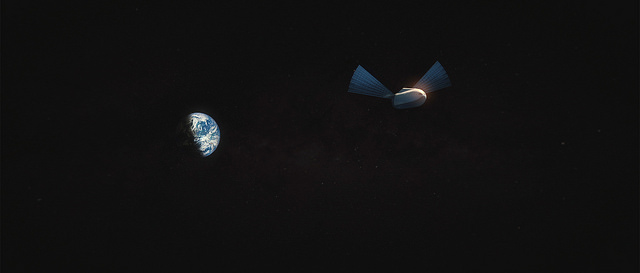SpaceX
Yes, we deserve to colonize Mars and keep our “light of consciousness”
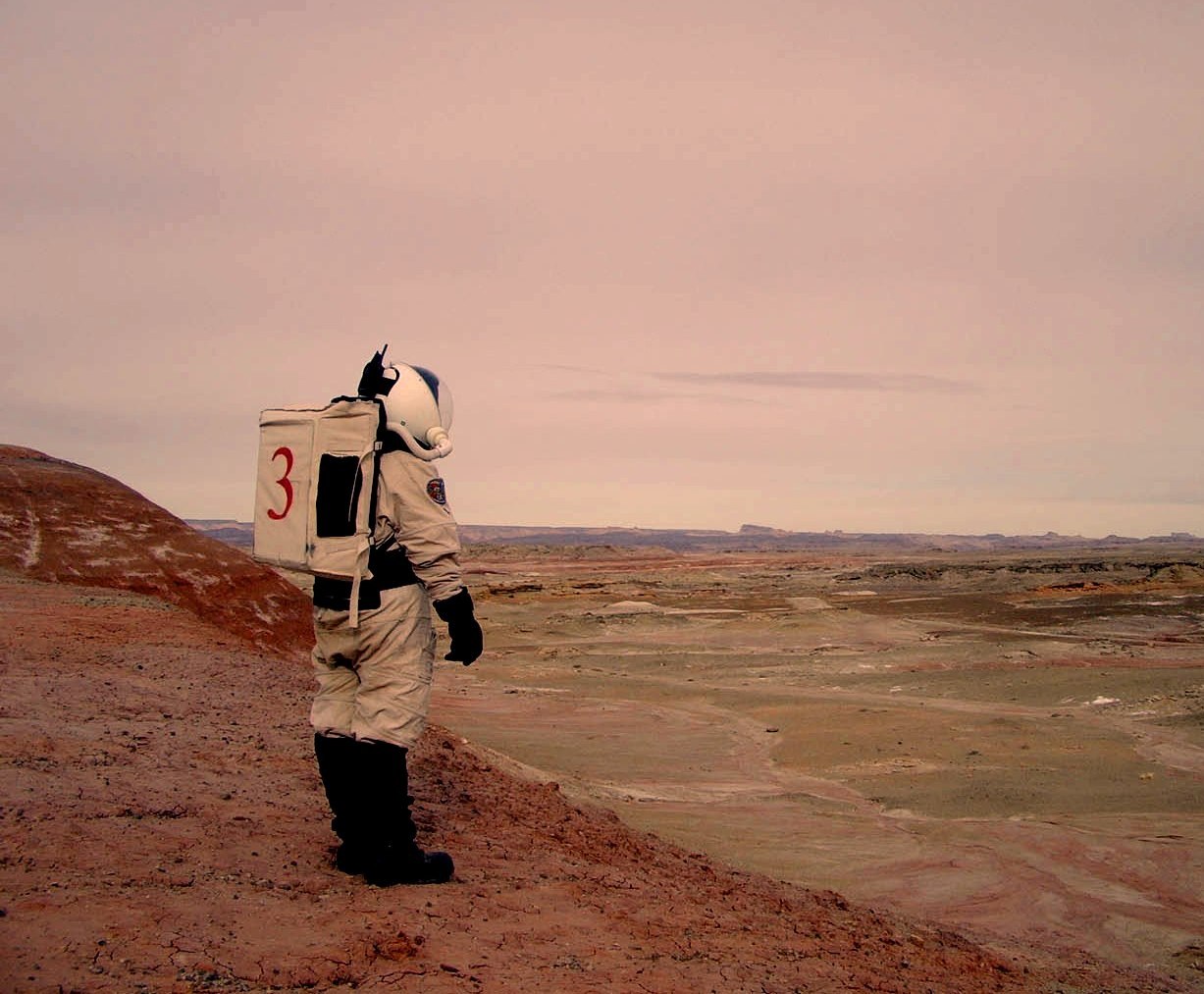
Elon Musk has spoken previously about having a duty to maintain the “light of consciousness” of humanity as the main rationale for multi-planetary habitation, or why we should colonize Mars specifically. It’s a pretty simple concept, really. Eventually the Earth will no longer be able to host human life as we know it, suffering from some sort of malady which will wipe out our species. Pick your poison: Asteroid attack, the Sun’s Earth-engulfing expansion, or even climate change. Something will bring us down, someday, unless we are proactive in our approach to survival.
Unfortunately, facts are fun things that don’t always help with solving problems (and annoyingly so), but it seems there’s also a crowd that doesn’t disagree with the facts and instead questions whether we even “deserve” to respond to them altogether.
In her recent TechCrunch article titled “The Ethics of Colonizing Mars”, Shivika Sinha cited Elon Musk, NASA, and the progress being made towards Mars and then asked the question, “Do humans deserve to be multi-planetary?”
 Her argument framed capitalism and consumerism as co-conspirators of our modern societal woes, and her conclusion was that we need to change our “parasitic” ways before exporting them to other planets in the universe. The whole argument was really just the human-shaming version of “fix Earth first”, a common objection to deep space colonization.
Her argument framed capitalism and consumerism as co-conspirators of our modern societal woes, and her conclusion was that we need to change our “parasitic” ways before exporting them to other planets in the universe. The whole argument was really just the human-shaming version of “fix Earth first”, a common objection to deep space colonization.
As a perfect, imperfect example of one of billions of humans on this planet, I will quite willingly admit that we are not a perfect species; however, I don’t understand why there’s so much guilt felt for merely existing in certain sects of society. It’s your choice whether to like who you are, but remember that you cannot live without living. You cannot stop pursuing the long-term survival of the species simply because you do not approve of its current state. Why aspire to be more if we are telling ourselves we are not even good enough to be such?
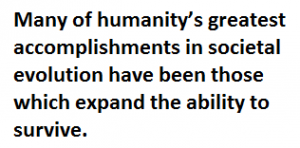 Behavior takes time to adjust. We do not live in a controlled, variable-limited scientific model society wherein our survival mechanisms are neatly categorized into “good” vs. “bad” choices. And more still, since when did survival become a question of worth? Many of humanity’s greatest accomplishments in societal evolution have been those which expand the ability to survive. Indeed, a huge part of compassion in our value system is the belief that everyone has the right to a life that is so much more than simply surviving. Given the consequences of not eventually going to colonize another planet, how does the logic compute that our species is suddenly not worthy of existence whatsoever?
Behavior takes time to adjust. We do not live in a controlled, variable-limited scientific model society wherein our survival mechanisms are neatly categorized into “good” vs. “bad” choices. And more still, since when did survival become a question of worth? Many of humanity’s greatest accomplishments in societal evolution have been those which expand the ability to survive. Indeed, a huge part of compassion in our value system is the belief that everyone has the right to a life that is so much more than simply surviving. Given the consequences of not eventually going to colonize another planet, how does the logic compute that our species is suddenly not worthy of existence whatsoever?
Sinha points to the flaws in our system which are in contradiction with the natural world, destroying it specifically, yet she doesn’t credit the source of the flaws to begin with: That same natural world. We were born in it, raised in it, and learned to survive based on those experiences. Somewhere along the line, we developed consciousness as a result of that process of surviving. We didn’t suddenly arrive on a beautifully balanced Earth ecosystem and begin sucking resources to feed our ravenous appetites. We fought hard to get here, and as an evolved species of this planet, we have the right to fight to continue to survive – just as every other living creature on Earth has done.
But that’s not the line of discussion I wanted to flesh out here.
Instead, I’d like to suggest that multi-planetary habitation is actually quite compatible with Sinha’s (and others like her) perspective because colonization is more than just a survival plan: It’s a tool for evolving our consciousness towards a value system which includes “conscious consumerism” by default.
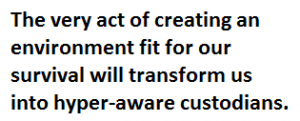 We evolved with the resources available in our Earth environment, and we’ve often taken them for granted because they were always there and available to us. When we take our species to colonize Mars, we will be doing just the opposite by transforming its environment to provide resources we need to survive. The very act of creating an environment fit for our survival will transform us into hyper-aware custodians. Every resource will be valued right down to the tiniest amounts measurable because even the most minute amounts will be important. Every action we take will have reactions that we must carefully calculate if we hope to survive.
We evolved with the resources available in our Earth environment, and we’ve often taken them for granted because they were always there and available to us. When we take our species to colonize Mars, we will be doing just the opposite by transforming its environment to provide resources we need to survive. The very act of creating an environment fit for our survival will transform us into hyper-aware custodians. Every resource will be valued right down to the tiniest amounts measurable because even the most minute amounts will be important. Every action we take will have reactions that we must carefully calculate if we hope to survive.
Taking the human race into deep space is so much more than “exporting” our consumerism once we’ve outgrown its birth place. It’s evolving who we are, increasing our awareness, and forcing us to understand the environments we will depend on and cannot risk taking for granted. We will be conscious of every choice we make as a matter of survival, and those lessons we learn in the early days of exploration will set the stage for the next phase of human colonization.
In the end, I think we’re all on the same page as far as long-term “colonize Mars” goals. The difference is simply in perspective. Taking our species to places like Mars isn’t an act based on some sort of contrived selfishness. It’s answering something we’ve had calling to us since the beginning of time: The stars. We came from them, and it’s to be expected that eventually we will want to return. Mars is the next step.
Onwards.

Elon Musk
Rumored SpaceX-xAI merger gets apparent confirmation from Elon Musk
The comment follows reports that the rocket maker is weighing a transaction that could further consolidate Musk’s space and AI ventures.
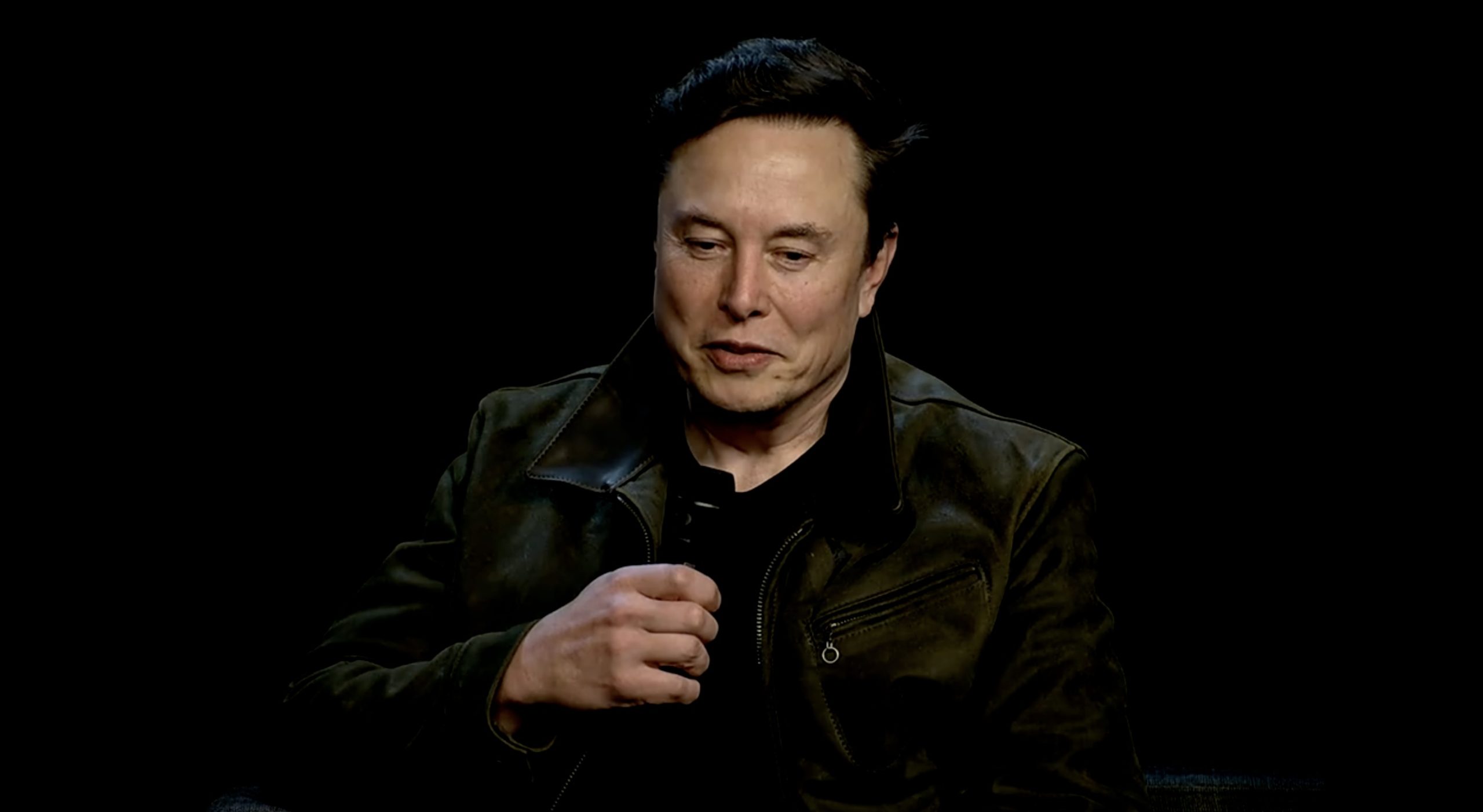
Elon Musk appeared to confirm reports that SpaceX is exploring a potential merger with artificial intelligence startup xAI by responding positively to a post about the reported transaction on X.
Musk’s comment follows reports that the rocket maker is weighing a transaction that could further consolidate his space and AI ventures.
SpaceX xAI merger
As per a recent Reuters report, SpaceX has held discussions about merging with xAI, with the proposed structure potentially involving an exchange of xAI shares for SpaceX stock. The value, structure, and timing of any deal have not been finalized, and no agreement has been signed.
Musk appeared to acknowledge the report in a brief reply on X, responding “Yeah” to a post that described SpaceX as a future “Dyson Swarm company.” The comment references a Dyson Swarm, a sci-fi megastructure concept that consists of a massive network of satellites or structures that orbit a celestial body to harness its energy.
Reuters noted that two entities were formed in Nevada on January 21 to facilitate a potential transaction for the possible SpaceX-xAI merger. The discussions remain ongoing, and a transaction is not yet guaranteed, however.
AI and space infrastructure
A potential merger with xAI would align with Musk’s stated strategy of integrating artificial intelligence development with space-based systems. Musk has previously said that space-based infrastructure could support large-scale computing by leveraging continuous solar energy, an approach he has framed as economically scalable over time.
xAI already has operational ties to Musk’s other companies. The startup develops Grok, a large language model that holds a U.S. Department of Defense contract valued at up to $200 million. AI also plays a central role in SpaceX’s Starlink and Starshield satellite programs, which rely on automation and machine learning for network management and national security applications.
Musk has previously consolidated his businesses through share-based transactions, including Tesla’s acquisition of SolarCity in 2016 and xAI’s acquisition of X last year. Bloomberg has also claimed that Musk is considering a merger between SpaceX and Tesla in the future.
Elon Musk
SpaceX reportedly discussing merger with xAI ahead of blockbuster IPO
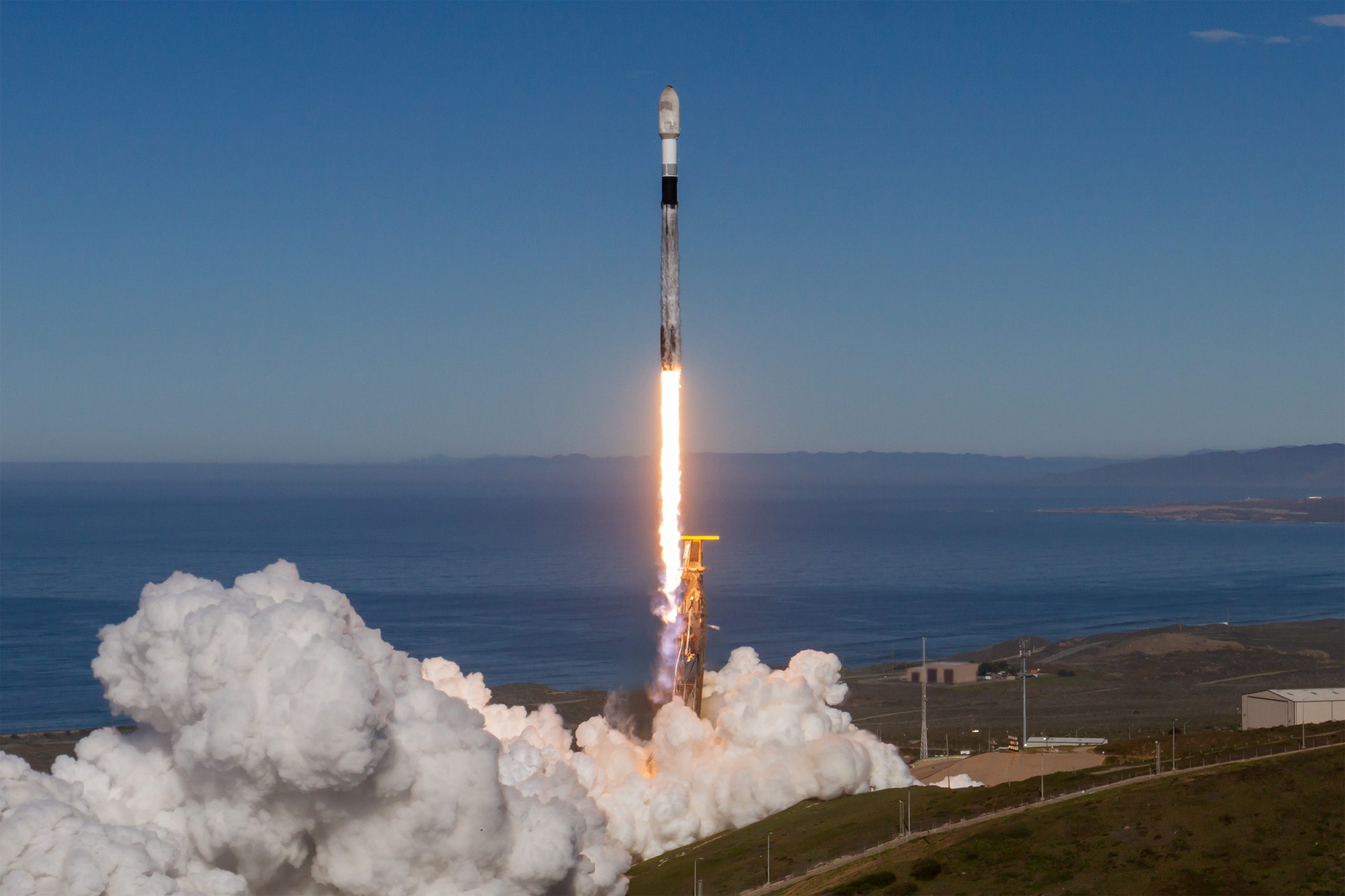
In a groundbreaking new report from Reuters, SpaceX is reportedly discussing merger possibilities with xAI ahead of the space exploration company’s plans to IPO later this year, in what would be a blockbuster move.
The outlet said it would combine rockets and Starlink satellites, as well as the X social media platform and AI project Grok under one roof. The report cites “a person briefed on the matter and two recent company filings seen by Reuters.”
Musk, nor SpaceX or xAI, have commented on the report, so, as of now, it is unconfirmed.
With that being said, the proposed merger would bring shares of xAI in exchange for shares of SpaceX. Both companies were registered in Nevada to expedite the transaction, according to the report.
On January 21, both entities were registered in Nevada. The report continues:
“One of them, a limited liability company, lists SpaceX and Bret Johnsen, the company’s chief financial officer, as managing members, while the other lists Johnsen as the company’s only officer, the filings show.”
The source also stated that some xAI executives could be given the option to receive cash in lieu of SpaceX stock. No agreement has been reached, nothing has been signed, and the timing and structure, as well as other important details, have not been finalized.
SpaceX is valued at $800 billion and is the most valuable privately held company, while xAI is valued at $230 billion as of November. SpaceX could be going public later this year, as Musk has said as recently as December that the company would offer its stock publicly.
The plans could help move along plans for large-scale data centers in space, something Musk has discussed on several occasions over the past few months.
At the World Economic Forum last week, Musk said:
“It’s a no-brainer for building solar-powered AI data centers in space, because as I mentioned, it’s also very cold in space. The net effect is that the lowest cost place to put AI will be space and that will be true within two to three years, three at the latest.”
He also said on X that “the most important thing in the next 3-4 years is data centers in space.”
If the report is true and the two companies end up coming together, it would not be the first time Musk’s companies have ended up coming together. He used Tesla stock to purchase SolarCity back in 2016. Last year, X became part of xAI in a share swap.
Elon Musk
SpaceX Starship V3 gets launch date update from Elon Musk
The first flight of Starship Version 3 and its new Raptor V3 engines could happen as early as March.
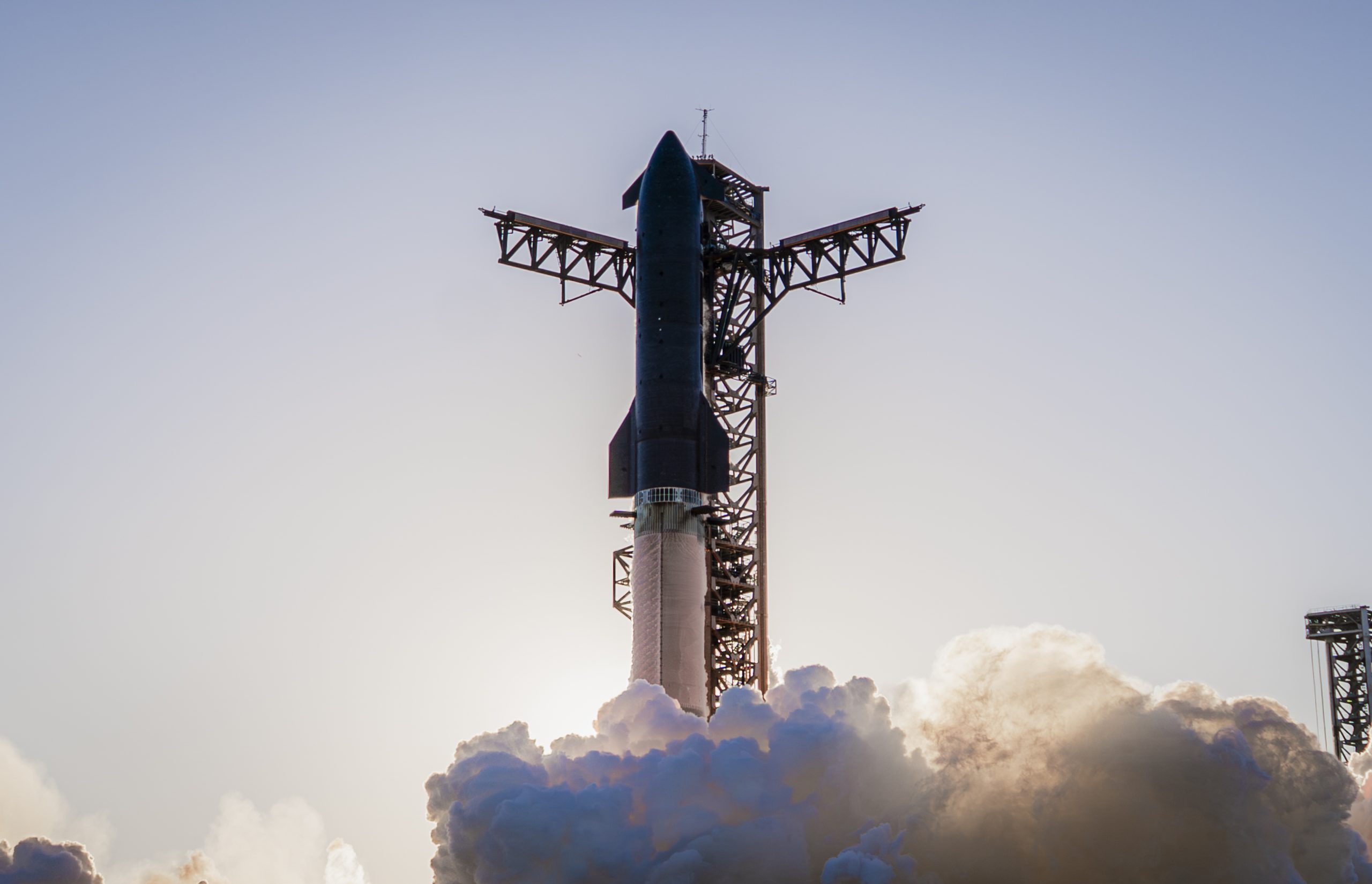
Elon Musk has announced that SpaceX’s next Starship launch, Flight 12, is expected in about six weeks. This suggests that the first flight of Starship Version 3 and its new Raptor V3 engines could happen as early as March.
In a post on X, Elon Musk stated that the next Starship launch is in six weeks. He accompanied his announcement with a photo that seemed to have been taken when Starship’s upper stage was just about to separate from the Super Heavy Booster. Musk did not state whether SpaceX will attempt to catch the Super Heavy Booster during the upcoming flight.
The upcoming flight will mark the debut of Starship V3. The upgraded design includes the new Raptor V3 engine, which is expected to have nearly twice the thrust of the original Raptor 1, at a fraction of the cost and with significantly reduced weight. The Starship V3 platform is also expected to be optimized for manufacturability.
The Starship V3 Flight 12 launch timeline comes as SpaceX pursues an aggressive development cadence for the fully reusable launch system. Previous iterations of Starship have racked up a mixed but notable string of test flights, including multiple integrated flight tests in 2025.
Interestingly enough, SpaceX has teased an aggressive timeframe for Starship V3’s first flight. Way back in late November, SpaceX noted on X that it will be aiming to launch Starship V3’s maiden flight in the first quarter of 2026. This was despite setbacks like a structural anomaly on the first V3 booster during ground testing.
“Starship’s twelfth flight test remains targeted for the first quarter of 2026,” the company wrote in its post on X.
